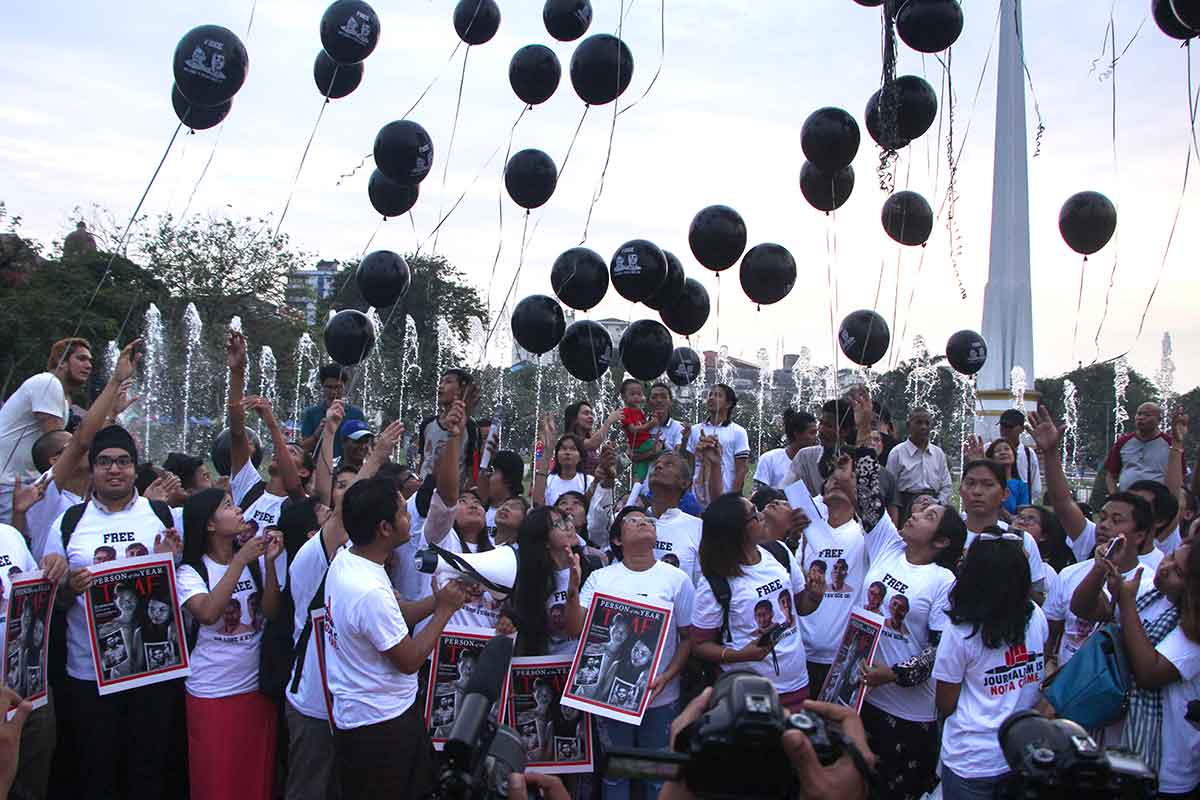Two Reuters journalists jailed while reporting on the Rohingya crisis in Myanmar are set to appeal the decision Monday, after spending more than a year behind bars despite global outcry over their convictions.
Wa Lone, 32, and Kyaw Soe Oo, 28, were arrested in December 2017 and later sentenced to seven year prison terms for what prosecutors said was the possession of classified material on security operations.
Reuters disputed the charge and said the two were set up after probing the massacre of 10 Rohingya Muslims during a military crackdown.
The ruling in September sparked widespread condemnation, including from US Vice President Mike Pence, who asked civilian leader Aung San Suu Kyi to intervene.
But calls for their release have fallen flat inside Myanmar, where Suu Kyi has yet to speak up for the reporters publicly.
Media advocates say the convictions sent a chilling message about investigating sensitive issues in Myanmar as it emerges from decades of junta rule.
"This is unacceptable for a country that claims to be transitioning towards democracy," Daniel Bastard from Reporters Without Borders (RSF) told AFP.
Myanmar dropped six places in RSF's latest World Press Freedom Index, and Bastard said it would likely fall further next year.
Outside the country the two young men have been feted with awards presented in their absence and hailed as heroes.
Wa Lone and Kyaw Soe Oo were also jointly named Time Magazine's Person of the Year this month, alongside other persecuted and slain journalists, as concerns grow for deteriorating press freedoms around the world.
The anniversary of their arrest was marked by newsrooms publishing photos of their staff flashing two thumbs up, a defiant gesture Wa Lone made at court that became synonymous with the duo's resilience.
The trial was widely regarded as a sham and payback for uncovering the September 2017 massacre in Inn Din village.
One whistle-blowing policeman told the court his superior ordered a sting to entrap the reporters.
More than 720,000 Rohingya have fled Rakhine state to Bangladesh since the military's crackdown last August, bringing accounts of rape, arson and mass killings.
UN investigators have said the evidence warrants charges of genocide against the country's top generals, but the army maintains it was defending itself against Rohingya militants. - AFP
